Conservative

Time magazine’s 2015 “Person of the Year” is a self-identified conservative Christian, but not one of the many running for president of the United States. While the dynamics of faith and politics are different in Europe, German leader Angela Merkel is an example of a conservative Christian living out her faith in the public square quite differently than we see in the U.S.
Time, which calls her “Chancellor of the Free World,” characterizes her strong leadership of economic and political crises in Europe as “no flair, no flourishes, no charisma, just a survivor’s sharp sense of power and a scientist’s devotion to data.” She may be a quantum chemist, but she’s also an Evangelical Lutheran preacher’s kid with an unwavering faith.

The phenomenon of “creeping normality” allows for significant changes to be deemed acceptable when they occur gradually over time, in relatively unnoticed increments, rather than single steps or dramatic and noticeable instances. The “boiling frog” metaphor, which illustrates the familiar account of an unassuming amphibian that is slowly and successfully cooked to death, reveals not only how such instances can occur, but also how a calculated and protracted alteration (produced by those with power to turn up the heat) can possess disastrous results if not noticed and properly countered (by those left in the water). We need not look far for modern-day examples.
Extreme partisanship has crept into our political normality. As revealed last year by the Pew Research Center, our civic temperature is methodically rising, perhaps beyond the boiling point. The study states:
“The overall share of Americans who express consistently conservative or consistently liberal opinions has doubled over the past two decades from 10% to 21%. [As a result], the center has gotten smaller: 39% of Americans currently take a roughly equal number of liberal and conservative positions, down from 49% in surveys conducted in 1994 and 2004.”

We met over email in the spring of 2012. I had just co-launched a literary blog and our mutual friend introduced us as fellow writers. Stephanie and I immediately hit it off. Not only was she a gifted writer, Stephanie and I shared a similar sense of humor and sensibility. As we got to know each other and began to write with each other, we discovered a ridiculous number of similarities and common points of interest, including and especially, our shared Christian faith. To paraphrase C.S. Lewis, it was as though every other email was a “you too?” moment.
Then one day I wrote a piece that indicated my progressive political leaning. The 2012 presidential election was heating up and though the piece was not overtly political, it revealed my beliefs. Stephanie, it turned out, was a conservative.
This news wasn’t really a big deal to me — I am used to have friends and family who have different political beliefs, and I even got my first start in the blogging world as the token “progressive” Christian through a conservative friend’s blog. But things were getting heated with the election and we didn’t know each other that well.
Stephanie and I began to email back and forth about politics through the lens of faith, which tested whether we were Christians or ideologues first. We shared two things in common in holding our different political beliefs because: 1) we had both thought a lot about them, and, 2) shockingly, neither of us had an interest in destroying America. Eventually Stephanie and I decided to co-write a bipartisan series for our website, looking at partisanship through the lens of faith (summary: love for Jesus makes for fertile common ground).
After the election it was hard to ignore the mix of apocalyptic expressions of woe and the tone-deaf exclamations of victory. Each came with its own vilification of the other party. I found myself at parties with fellow progressives defending conservatives because the caricatures of them were plainly wrong, and I would be hurt if Stephanie didn’t defend me against caricatures of progressives.
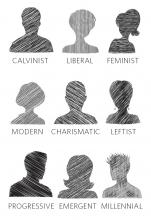
Christianity is full of labels.
Does caring about the environment make me a Liberal Christian?
Does opposing to the death penalty make me a Leftist Christian?
Does believing that women can preach make me a Christian Feminist?
Does believing in anti-violence make me a Christian Pacifist?
Does taking an anti-war stance make me an Anabaptist Christian?

“Jesus was a radical who welcomed everyone and criticized powerful leaders who oppressed the poor. Jesus was crucified because he was a political threat. But the Apostle Paul was a conservative missionary who misunderstood Jesus and was anti-woman, pro-slavery, and anti-gay.”
That seems to sum up how many progressive Christians view Paul. But are such views justified by the biblical record? Or are there other ways to understand the zealous Pharisee who became an apostle to the Gentiles?
IN THE EARLY 1970s, I came across an article on Jesus’ women disciples in the Christian social justice magazine The Other Side. I was shocked. I had attended church all my life; how come I never noticed those women disciples?
What I didn’t know then was that a renewed “search for the historical Jesus” was underway. Applying the ever-developing insights of sociology, anthropology, and archaeology, scholars were investigating the socio-economic and political aspects of life in first century Palestine. How did Jesus fit into his historical context? As a peasant healer, how did he challenge the Roman occupation and their clients, the chief priests at the temple in Jerusalem?
It takes a while for new insights from biblical research to reach lay Christians. This is further delayed if church leaders are suspicious of intellectual elitism and fearful some of their parishioners might “lose their faith.”
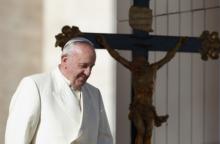
It’s one thing to say kind words about gay people and atheists while admonishing those who would bury them in stones.
It’s one thing to walk humbly and call the Catholic Church to compassion for the poor.
It’s one thing to kiss a horribly disfigured man from whom most people would run in disgust.
But apparently, it’s quite another to start calling out growing economic inequality and naive faith in capitalism. By doing just that in his recent encyclical, Pope Francis has touched a third rail in conservative American politics. So begins the backlash.
Yet in the new round of skirmishing around Francis and his supposedly “liberal” views, U.S. political pundits and news media wags — both progressive and conservative — are missing the point about the pope and what he’s up to. Their mistake? They see his words and deeds through the lens of American politics and ideology. What Francis is doing is prophetic, not political, and we should recognize that he’s playing, to his credit, in a whole different arena.
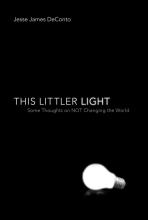
When I was seven years old in the mid-‘80s, Mom started taking my brother Marco and me to Grace Bible Baptist Church and School in rural New Hampshire. We’d pass by all these well-attended, high-steepled liberal churches to worship in a squat, utilitarian building hidden on a back road in the woods, with a congregation of 30 or 40 strong: The Moral Majority. U.S. Rep. Michele Bachmann’s recent claim that we’re living in the end times reminds me of those days. We were the pre-party to the Tea Party. There were Ronald Reagan posters in the lobby. We’d listen to sermons about “back masking” and the Satanist propaganda you’d hear if you played rock records backwards. One week, we came back to church every night after school to watch Russell Daughten’s four-part 1970s Rapture movie series, the original Left Behind: Polyester pandemonium.

Amid a finance scandal that touched the heart of France’s Socialist government, a quieter drama played out this month as the country’s top rabbi resigned his post after admitting to plagiarism.
Rabbi Gilles Bernheim offered his apologies for “borrowing” the work of others and lying about his academic credentials, ending a leadership crisis that has rocked the country’s 600,000-strong Jewish community, the largest in Europe.
Now, as the search begins for a new grand rabbi, questions are mounting about which direction the religious leadership will take — notably whether it will continue Bernheim’s move toward a more “modern” and perhaps more inclusive French Judaism, or return to a more inward-looking faith.
IT WAS AS if the poison of the rancorous 2012 campaign had seeped into our social groundwater, tainting family gatherings, Facebook feeds, church coffee hours, and workplace lunch rooms. In my lowest moments I pictured an election-result map rendered with myriad fractures, like windshield glass—a nation of particles and fragments, held together, barely, by begrudging surface tension.
How do those of good will find productive and respectful ways to talk about important civic and moral issues when a significant number of people view their fellow citizens as enemies?
Two recent books, by radically different authors, explore how to stay committed to your principles while reaching out and even finding common cause with those who live and believe differently.
ReFocus: Living a Life that Reflects God's Heart, is by Jim Daly, president since 2005 of Focus on the Family. Faitheist: How an Atheist Found Common Ground with the Religious is by Chris Stedman, the assistant Humanist chaplain at Harvard University and an activist in atheist-interfaith engagement. Daly leads a conservative evangelical institution that has been a major player on the Right in the culture wars of the past three decades (including around what Focus would term the "homosexual lifestyle"). Stedman is a young gay atheist who was once attacked by thugs who shouted Bible verses as they tried to shove him and a friend in front of an oncoming train. And yet both men argue, from both pragmatic and ethical grounds, for actively and respectfully engaging those who hold different beliefs.
People of all stripes are redefining what it means to be “pro-life” by upholding a consistent ethic of life—from womb to tomb. Take conservative luminary Richard Viguerie, for example.
My friend Mike Gerson wrote a significant column in the Washington Post today, titled "An Ideology Without Promise." It takes a deeper look at the now infamous Romney video and addresses the crisis that we all have to face now. I recommend reading Mike’s column. He says in part:
This crisis has a number of causes, including the collapse of working-class families, the flight of blue-collar jobs and the decay of working-class neighborhoods, which used to offer stronger networks of mentors outside the home. Perverse incentives in some government programs may have contributed to these changes, but this does not mean that shifting incentives can easily undo the damage. Removing a knife from a patient does not automatically return him to health. Whatever the economic and cultural causes, the current problem is dysfunctional institutions, which routinely betray children and young adults. Restoring a semblance of equal opportunity — promoting family commitment, educational attainment and economic advancement — will take tremendous effort and creative policy.
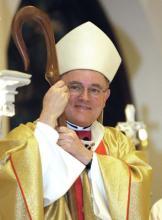
A series of recent developments are renewing questions about the Catholic bishops' alignment with the Republican Party, with much of the attention focusing on comments by Philadelphia Archbishop Charles Chaput, who said he “certainly can’t vote for somebody who’s either pro-choice or pro-abortion.”
In a wide-ranging interview published Sept. 14, Chaput also echoed the views of a number of prominent bishops when he praised Republican vice presidential nominee Paul Ryan for trying to address the “immoral” practice of deficit spending through his libertarian-inflected budget proposals.
"Jesus tells us very clearly that if we don’t help the poor, we’re going to go to hell. Period. There’s just no doubt about it,” Chaput told National Catholic Reporter.
“But Jesus didn’t say the government has to take care of them, or that we have to pay taxes to take care of them. Those are prudential judgments. Anybody who would condemn someone because of their position on taxes is making a leap that I can’t make as a Catholic.”
Chaput stressed that he is a registered independent “because I don’t think the church should be identified with one party or another.” But he said that the Democratic Party’s positions on abortion rights, gay rights, and religious freedom “cause me a great deal of uneasiness.”
He added that economic issues are “prudential judgments” open to a variety of legitimate approaches. Abortion, on the other hand, is “intrinsically evil” and must always be opposed.
That is a talking point voiced by many Catholic conservatives, including Ryan himself. Last Friday, Ryan told the Christian Broadcasting Network that opposition to abortion and same-sex marriage, and support for religious freedom, are all “non-negotiables” for a Catholic politician while “on other issues, of economics and such like that, that’s a matter of prudential judgment.”
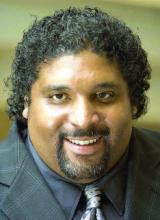
The better way says, if we follow God’s religious values we can use global technology, green economy, and targeted economic and infrastructure investment, total access to education, and creative job creation strategies to address the ugly realities of poverty. If we follow the enduring ethic of love we can beat our swords of racism into the plows that will till the new soil of brotherhood and sisterhood
If we see the poor as our neighbors, if we remember we are our brother’s keeper, then we shall put the poor, rather than the wealthy, at the center of our agenda.
If we hold on to God’s values, the sick shall have good health care. The environment shall be protected. The injustices of our judicial systems shall be made just. We shall respect the dignity of all people. We can love all people. We can see all people as God’s creations.
We can use our resources to develop our minds and economy, rather than build bombs, missiles, and weapons of human destruction.
Do we want to keep pressing toward God’s vision? Values are once again the question of our times.
Do we want a just, wholesome society, or do we want to go backwards? This is the question before us. And I believe that at this festival there is still somebody who wants what God wants. Somebody who understands there are some things with God that never change
There are still some prophetic people that have not bowed, who as a matter of faith know that Love is better than hate. Hope is better than despair. Community is better than division.
Peace is better than war. Good of the whole is better than whims of a few. God wants everybody — red, yellow, black, brown and white taken care of. God wants true community, more togetherness … not more separateness. God wants justice, always has, always will.
Because with God some things never change.

Mitt Romney clinched the GOP presidential nomination on May 28, becoming the first Mormon selected by a major political party. But will his barrier-breaking faith be a boon or bane to his White House campaign?
The answer to that question could presage the next president, and two studies published in May come to contradictory conclusions.
In both studies people were given information about Romney and his Church of Jesus Christ of Latter-day Saints, then asked whether they would be more or less likely to vote for him.
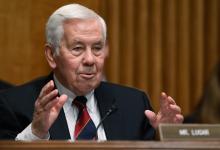
Sen. Richard Lugar (R-IN) was defeated for renomination yesterday in the Indiana Republican primary. During 35 years in the Senate, Lugar had built a reputation as a conservative, but one who was willing to work across the aisle, especially on issues of foreign policy and nuclear non-proliferation. That willingness became a major attack point for his opponent, State Treasurer Richard Mourdock, who pledged to end attempts at bipartisanship by pushing a more conservative agenda. “I have a mindset that says bipartisanship ought to consist of Democrats coming to the Republican point of view,” he said this morning.
Lugar’s concession statement was unyielding:
"If Mr. Mourdock is elected, I want him to be a good Senator. But that will require him to revise his stated goal of bringing more partisanship to Washington. He and I share many positions, but his embrace of an unrelenting partisan mindset is irreconcilable with my philosophy of governance and my experience of what brings results for Hoosiers in the Senate. In effect, what he has promised in this campaign is reflexive votes for a rejectionist orthodoxy and rigid opposition to the actions and proposals of the other party. His answer to the inevitable roadblocks he will encounter in Congress is merely to campaign for more Republicans who embrace the same partisan outlook."
Here are a few of today’s reactions.

Back in John Kerry’s ill-fated 2004 presidential campaign, Democrats tried to attract so-called “NASCAR Dads” – white, working-class, mainly Southern fellows – to try to blunt George W. Bush’s re-election and show folks that Kerry was not a wealthy patrician who only appealed to “soccer moms.”
Now Ralph Reed’s Faith and Freedom Coalition is trying to corral what might be called “NASCAR Christians” in hopes that social conservatives will give Mitt Romney a crucial boost in November.
Two new polls have been released this week that have caught the eye – one from The Pew Forum on Religion and Public Life and the second from Rasmussen. Both show shifts in the number of people supporting GOP Presidential Candidates Mitt Romney and Rick Santorum, and some rather large shifts at that.

We're not sure whether they were inspired by Sojourners’ ongoing "What Is An Evangelical" series, but TIME Magazine has published an interesting set of short articles from influential conservatives who answer three separate, but connected questions.
Find out what they are — and offer your answers — inside the blog...

As someone who self-identifies as an evangelical Christian, often I begin to feel like the subject of a Discovery Channel documentary, particularly in the midst of a heated presidential election cycle.
It’s Evangelical Week here on Discovery! Travel with us as our explorers track the elusive evangelical in its native habitats. Watch as evangelicals worship, work and play, all captured on film with the latest high definition technology. And follow our intrepid documentary team members as they bravely venture into the most dangerous of exotic evangelical locations — the voting booth!
I understand the interest in us evangelicals, I really do. The way much of the mainstream media covers our communities in the news can make us seem like a puzzling subspecies of the American population, not unlike the Rocky Mountain long-haired yeti.
Are we really that difficult to comprehend?
In a word, yes.